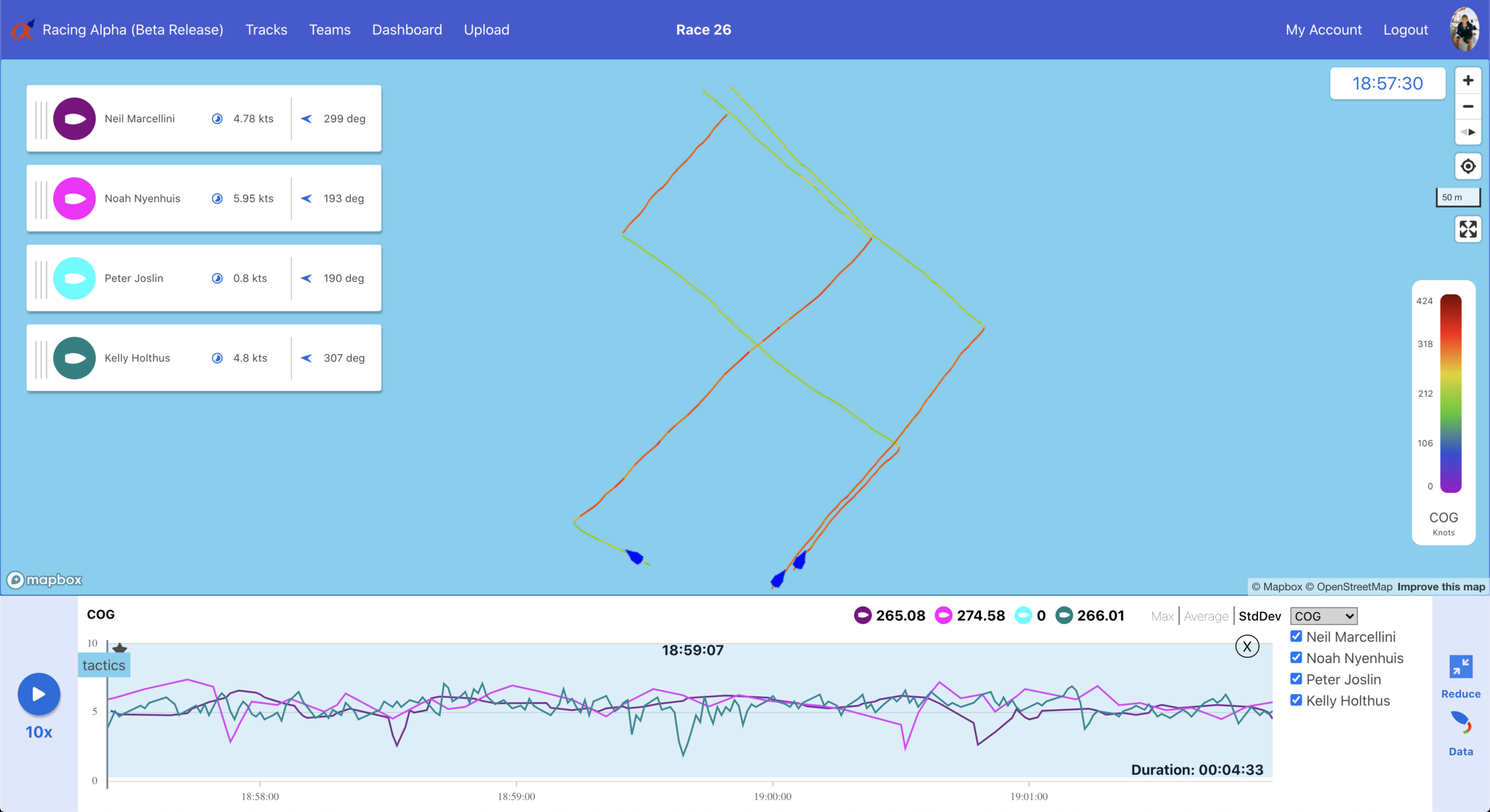For Racing Alpha sailors, Hoel Meynard and Kelly Holthus, two Cal Yacht Club practice regattas in October rounded out preparation for the winter season in Miami, Florida.
On Saturday of the first event, Kelly and Hoel put on a clinic for the rest of the fleet, with a killer high mode and consistent tactics characterized by starting to windward of the fleet and controlling access to the escape routes on right side of the course. Sunday morning, their speed was the focus of our debrief, highlighting their tight groove (as measured by looking at standard deviation of course over ground - COG), and their willingness to use a higher, slower mode to maximize VMG (on average, their speed was .3knots slower than the boats sailing a low/fast mode, but course was almost 3 degrees higher).
Note: As of 11/19/2020, the StdDev calculation actually displays the Average + StdDev, but by the end of the month, this will be fixed!
On Sunday, the rest of the fleet caught on to the high mode, and the Janov brothers rallied, but it was a little too late in the series to overtake Kelly and Hoel.
Two weekends later, it was Kelly and Hoel’s turn to learn from their Skiff Squad teammates. Both days started out light and lumpy, and speed was a challenge! Again, the high mode paid, but this time, the groove on that high mode had to be wider to keep the boat moving, again with slower speeds and higher angles paying off.
This time, Skiff Squad alum, Quinn Wilson sailing with Jordan Janov pushed the limits the most, and the results followed suit.
These training events were a dry run for the winter racing in Miami, Florida, and as the first Skiff Squad team to make the trek east since the COVID-19 pandemic began eight months ago, Kelly and Hoel lined up with the 2Niner fleet to test their progress. In eight races, the duo quickly adapted to the Biscayne Bay conditions, remarking that they were, “Just like the training in California,” and bested the fleet of 14 teams.
The only metric that EVERYONE knows how to interpret are the results at the end of a regatta, but we believe that by building a system of more granular evaluation metrics, we can shift the focus away from results to instead focus on the details. This process oriented approach develops a steeper learning curve in between competitions, and in the long run creates a more stable racing psychology when teams build confidence in the details!





